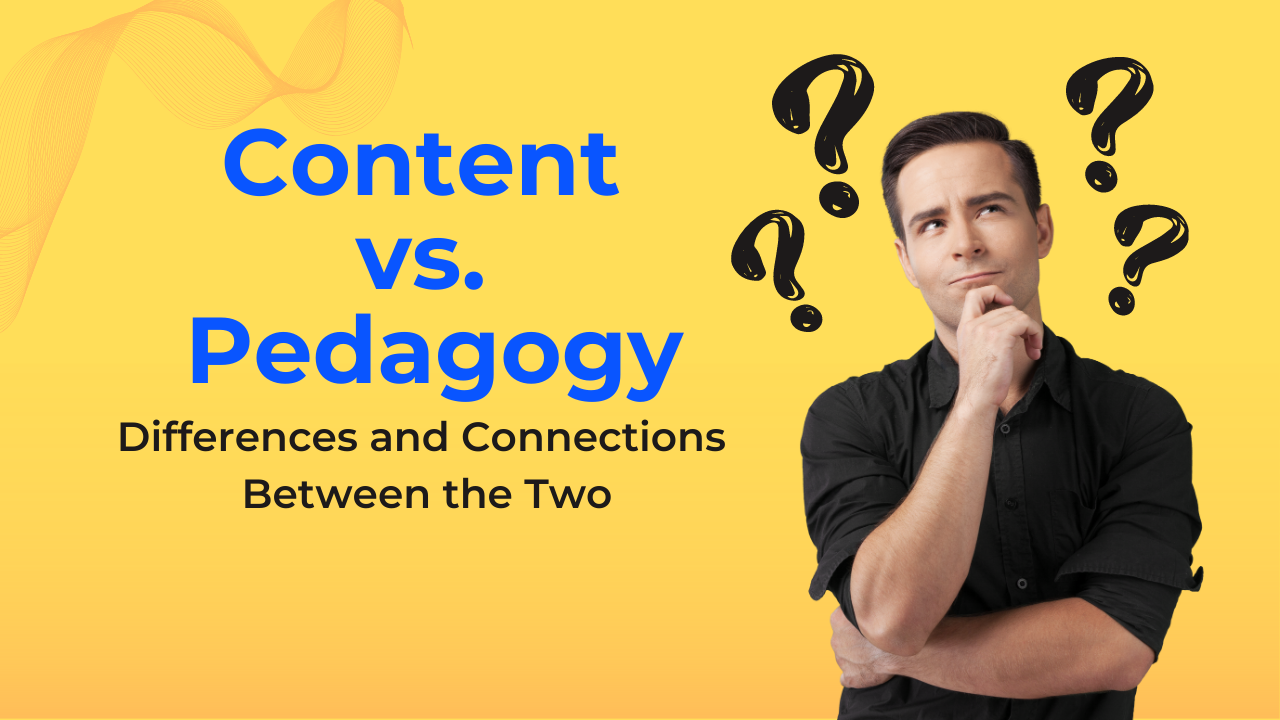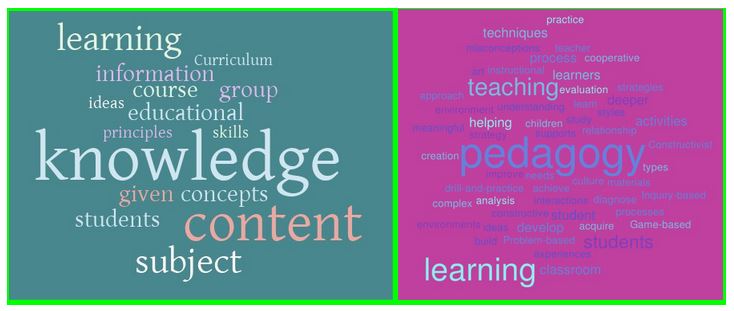
Content vs. Pedagogy: Differences and Connections Between the Two
Jul 03, 2021Component 1 of the National Board for Professional Teaching Standards (NBPTS) Maintenance of Certification process asks what seems like a simple question.
This component instructs you to write about the ways you have acquired and deepened content and pedagogical knowledge in your NBPTS certificate area (rubric bullet #2) during the renewal period.
Oftentimes, terms like pedagogy vs. content confuse teachers. However, there is a very clear difference (and link) between the two. Let's unpack them in this blog.
Pedagogical and Content Knowledge
Question #3 in Component 1 of the Maintenance of Certification Process asks: In the context of your PGE, explain how you have acquired and deepened your certificate area-specific content knowledge and/or your pedagogical knowledge and skills to remain current, including use of research and/or use of other professional activities.
Understanding the difference between content and pedagogy is vital for providing a complete and accurate answer to this question. Let’s take a closer look at the two.
What is Content Knowledge?
First, content knowledge. This term refers to the knowledge, subject matter, content, concepts, information, curriculum, ideas, and principles you teach students each day. Content knowledge examples span across multiple disciplines and levels of education, from specific vocabulary used in instruction to mathematical formulas.
What is Pedagogy?
Second, pedagogy is "how you go about teaching something" or your overall instructional approach. Just a few examples include:
- Drill-and-practice
- Problem-based learning
- Game-based learning
- Inquiry-based learning
- Constructivist practices
Your pedagogy focuses on helping students acquire the skills to develop ideas (content), in a constructive way. Therefore, pedagogy is also seen as the relationship between learning techniques and classroom culture.
That definition can help us understand the importance of pedagogy in teaching. The processes, tools, and concepts that help deliver knowledge to students and equip them to use that knowledge themselves are crucial for positive results in education. Similarly, pedagogical teaching is the effective application of these approaches in the classroom.
In a nutshell, pedagogy is the study of HOW to present different types of content. It requires meaningful classroom interactions between you and your students.
Pedagogy is "the art of teaching students."
A Deeper Look at the Connections and Differences Between Pedagogy and Content Knowledge
Content knowledge is generally seen as the WHAT to the pedagogies of HOW students will learn. In other words, content knowledge signifies KNOWLEDGE. Pedagogy, meanwhile, is the vehicle that develops the SKILLS students use to showcase mastery of the content.
With all of that being said, how can we think of them in an isolated manner? I argue that in reality we don't separate them while instructing our students, but we do naturally outline them differently while planning for the instruction.
For example, how is a student supposed to be able to learn to write well if they don't have any content knowledge to write about?
We could teach them every strategy and technique for the development of paragraphs, sentence structure, organization, etc., and something would still be missing. They must begin with the ideas of WHAT they know and can write about.
You are in this position right now. Through the Maintenance of Certification process, you must first use the IDEAS and UNDERSTANDINGS you have developed over time. You can then write a clear, concise, and convincing portfolio meeting the scoring rubric for the NBPTS.
Content cannot matter more than anything else. In fact, if a teacher ends up with sophisticated levels of knowledge and simplistic instructional methods (pedagogy), the "cart" would then be more important than the proverbial "horse."
Pedagogy can improve the quality of your teaching and the way (and the depth at which) students learn — if you take the time to create cooperative learning environments that invite complex learning processes like analysis, evaluation, and creation. Students will be supported in gaining a deeper understanding of the subject matter while you help them apply their knowledge to their own personal experiences outside the classroom.
What we teach (content) and how we teach (pedagogy) are intricately dependent on one another. A teacher's development of both is crucial to the continued impact they have on students in the classroom.
Are you looking for support and a systematic approach to completing your NBPTS MOC Portfolio? Do you wish to work with other teachers and alongside a master NBPTS Support Provider?
Check out the Maintenance of Certification page for opportunities to join an upcoming ACTIVE virtual cohort.


